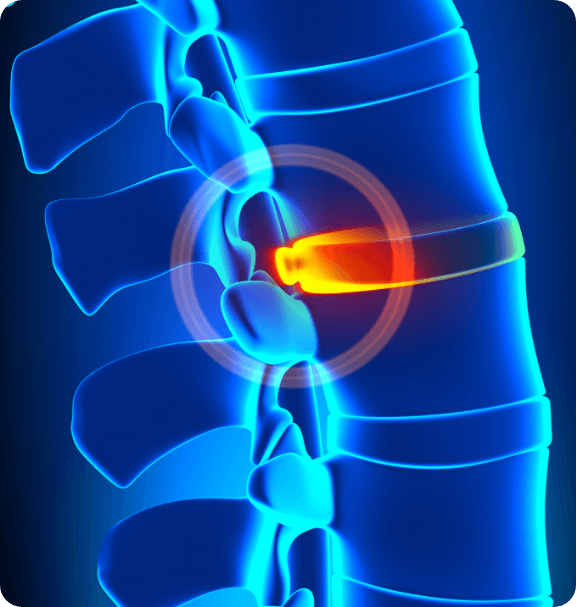Herniated Bulging Disc
What is a herniated bulging disc?
Vertebrae form the structure of the spine, and are separated by round cushioning discs.
These discs have a tough, flexible outer layer called the annulus, which acts as a shell around the soft, jelly-like nucleus. These discs assist in absorbing shock. Sometimes referred to as a slipped disc or ruptured disc, a herniated disc occurs when the nucleus breaches the annulus covering through a tear. This can occur in any section of the spine, however it is most common in the lower back.
Symptoms
The extent of affects is determined on the location of the herniated disc, however, sometimes symptoms are not particularly noticeable as the first signs of pain can diminish after a few days.
Symptoms that may be evident are the following:
- Sciatica - a sharp or electric-like pain that radiates along the back of the legs and lower back.
- Numbness, weakness or tingling in the leg or foot.
- Cervical radiculopathy - the compression of nerves in the neck, resulting in pain in the neck, between the shoulder blades, or down the arm.
- In extremely rare cases, loss of bladder or bowel control. However, this may be indicative of more concerning issue, cauda equina syndrome, that requires immediate medical attention.


Causes
Herniated bulging discs are often associated with age-related degeneration of the spine.
This occurs as a result of a natural decrease in spine flexibility as the water content in the discs reduce as people age. The subsequent shrinking makes people of age at a higher risk to herniation.
With that said, repetitive activities put pressure on the spine increases the risk of this condition. Improper lifting, for example, may explain why men between the ages of 20 and 50 have the highest rate of herniated discs. Other activities such as extensive periods of sitting in a car can put pressure on the spine due to poor posture and vibrations. Smoking is also linked to increased rate of disc degeneration due to a lower oxygen supply over time.
Make an appointment
Your well-being is our priority, and we invite you to experience the transformative impact of advanced spinal care.